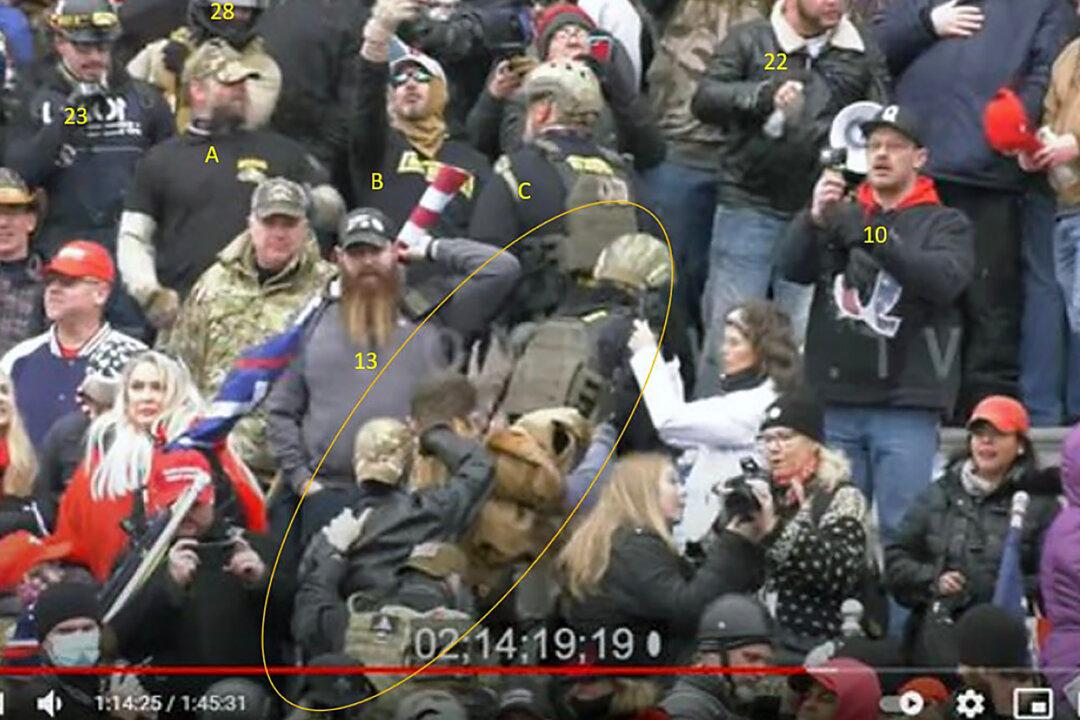When he surrendered his phone to FBI agents in May 2021, Oath Keepers founder Elmer Stewart Rhodes III warned them they would see instances of “guys running their mouth” in chat groups and a group of Oath Keepers who “went rogue” on Jan. 6, 2021, according to a transcript of Rhodes’s FBI interview obtained by The Epoch Times.
Two FBI agents interviewed Rhodes and Oath Keepers general counsel Kellye SoRelle in Texas on May 3, 2021. In the wide-ranging discussion obtained by The Epoch Times (read Part 1 here), Rhodes cautioned the agents not to read too much into bluster by some of his members that would be evident in phone content.





